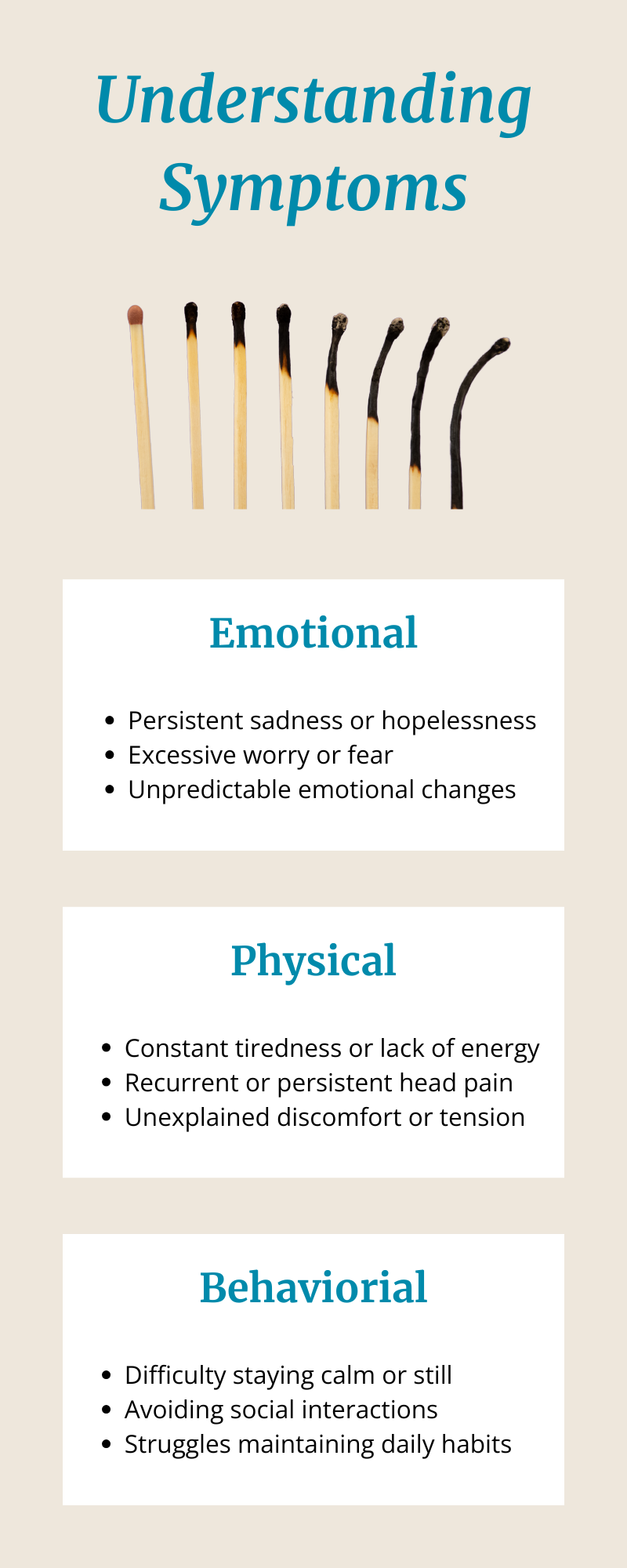
How to Recognize and Manage Caregiver Burnout
Key Takeaways
- Caregiver burnout can show up as exhaustion, irritability, or feeling overwhelmed.
- It often builds slowly and can impact physical and mental health.
- Warning signs include withdrawing from others, sleep issues, and resentment.
- Taking breaks and asking for help is essential—not selfish.
- LifeWorx offers reliable support so family caregivers can rest and recharge.
Taking care of someone you love is an incredible act of kindness, but let’s be honest, it’s not always easy. As a home care agency with over 20 years of experience connecting families with compassionate caregivers, we understand the challenges that come with caregiving.
Caregiver burnout is a state of mental, physical, and emotional exhaustion that affects people who provide long-term care for loved ones with chronic illnesses, disabilities, or aging-related needs. It’s a widespread and serious condition, with major impacts on emotional well-being and physical health. To support our caregivers, we not only match families with trusted professionals but also check in regularly with caregivers to ensure they’re managing their well-being.
Causes of caregiver burnout
Several factors contribute to caregiver burnout, including prolonged stress, heavy responsibility, insufficient sleep, financial strain, and social isolation. The emotional toll of grief and loss, coupled with feelings of helplessness and guilt, can intensify burnout.
Caregiver burnout happens when you spend most of your time, energy, and resources on caring for others and neglect yourself. Recognizing the signs of burnout is a crucial step in taking control of your well-being. Here are some indicators that you might be experiencing burnout:
Emotional signs: Feeling overwhelmed, irritable, or detached. Some caregivers experience depression, anxiety, and frequent mood swings.
Physical signs: Constant exhaustion, frequent colds, headaches, or changes in sleep patterns and appetite.
Behavioral signs: Withdrawing from social activities, neglecting hobbies, or having trouble concentrating.

Burnout doesn’t just affect you; it can also impact the person you’re caring for. For caregivers, prolonged stress can lead to more significant health problems, including high blood pressure, a weakened immune system, and even anxiety or depression. The care recipient can suffer from inconsistent care, emotional distress, and potential health declines, as they may sense the caregiver’s stress.
Prevention for caregiver burnout
Caregivers can take proactive steps to reduce the risk of burnout. Here are several effective strategies:
Ask for support. Caregiving is not a one-person job, and there’s no shame in asking for assistance. Family members or close friends might be able to pitch in, whether it’s running errands, cooking meals, or sitting with your loved one for a few hours.
Make self-care a priority. Self-care doesn’t have to mean spa days and weekends off. It’s about meeting your basic needs by staying active, eating well, and getting sufficient rest. For instance, taking a short walk, preparing a healthy meal, or ensuring you get a good night’s sleep can all be forms of self-care.
Stay organized. Keeping track of medications, appointments, and tasks can feel overwhelming, but tools like calendars or caregiving apps can make it more manageable.
Use professional resources. Respite care is a service that allows you to step away while someone else takes over caregiving temporarily. Even a few hours a week can make a big difference.
FAQs about caregiver burnout
One of the most important things for caregivers to understand is that burnout is a widespread issue, not an indication of failure or weakness. Anyone who provides ongoing care for someone, especially without sufficient support, is at risk. But that raises several questions:
Can caregiver burnout happen to anyone?
Yes. While every caregiving situation differs, anyone providing long-term care can experience burnout.
How can I talk to my family about needing help?
It can be challenging to ask for support, especially if you feel it’s your responsibility. Start by explaining how caregiving is impacting you and be specific about the help you need. For example, ask someone to handle grocery shopping or take your loved one to appointments.
How can I tell the difference between everyday stress and caregiver burnout?
Everyday stress comes and goes. It’s manageable with short breaks or rest. Burnout feels constant, and taking a break doesn’t seem to help. It often comes with a sense of emotional
What should I do if I think I’m burned out?
Talk to a friend, family member, or professional about what you’re experiencing. Support groups will allow you to connect with others who understand what you’re going through and can offer practical advice and solidarity.
How do I know when it’s time to consider outside help permanently?
If caregiving is negatively impacting your health, relationships, or ability to provide adequate care, it may be time to explore other options. LifeWorx can provide the expertise and relief you need. Our services are flexible, ranging from a few hours a week to full-time care.
Caregivers often face a tricky balancing act, juggling responsibilities like managing medical appointments, coordinating schedules, and providing emotional support, all while trying to maintain their own lives. If you’ve been feeling emotionally and physically drained, you’re not alone. Burnout is more common than you might think, and it’s important to address it before it takes over.


















